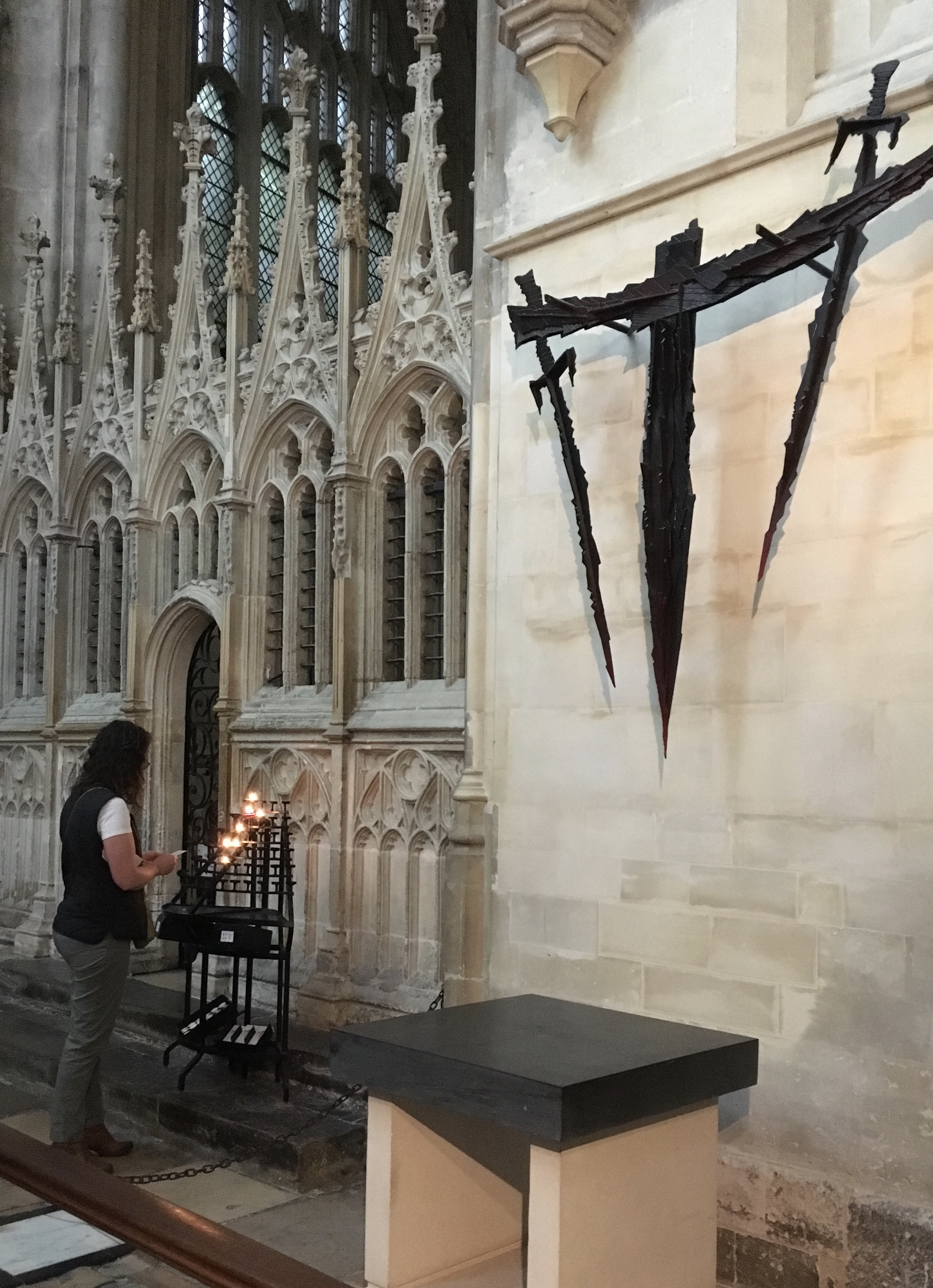Trust, listening, complete messages, and cooperation
 Thursday, July 23, 2020 at 12:52PM
Thursday, July 23, 2020 at 12:52PM  I follow the advice and the law. I wear a mask. I wear it when I’m out walking on my own and will come close to others on the street. I wear it on my occasional trips to the market. I wear it in my apartment building when taking my trash out or getting my mail. My friends wear masks. Just about everyone in Seattle wears masks.
I follow the advice and the law. I wear a mask. I wear it when I’m out walking on my own and will come close to others on the street. I wear it on my occasional trips to the market. I wear it in my apartment building when taking my trash out or getting my mail. My friends wear masks. Just about everyone in Seattle wears masks.
There are of course those who don’t wear a mask—the unenlightened, the wrong, Trump people; what Hillary called “the deplorables.” It’s clear who the weeds are, and who the wheat is.
How to Actually Talk to Anti-Maskers
There was an article in the New York Times yesterday. It suggested that listening to people and offering complete and nuanced explanations, helps build trust and gains more cooperation.
A big problem, according to Ranu Dhillon, a doctor at Harvard who advised the Guinean president during the Ebola crisis, is a lack of nuance.
“All advice ends up binary,” he told me recently. “It’s absolutely one way or absolutely the other way, when it should be shades of gray. It happened with the World Health Organization and denying asymptomatic transmission early on. It happened with masks. And it happened with states reopening.”
The article went on to explain how science really works with the evidence it has at the time and revises its claims as new evidence emerges. The writer went further, “public health experts have eroded trust by not accurately communicating uncertainty and by being stubborn about correcting the record when our understanding evolved. He described the strategy as a light switch that toggles on and off only when scientific consensus reaches a certain threshold. What’s needed, though, is something akin to a dimmer. “When we do flip the switch, we rarely admit that we are pulling a 180,” he said. “We don’t apologize.”
How to Actually Talk to Anti-Maskers (NY Times 7/22/20) Charlie Warzel
 The comment section of the article showed the difficulty. The general tone was “we’re right, they’re wrong; nothing to talk about”
The comment section of the article showed the difficulty. The general tone was “we’re right, they’re wrong; nothing to talk about”
“I'm sorry, I am finding it difficult to empathize with anti-mask individuals.”
“If the economic disaster, body count, and loss of friends or acquaintances hasn't made an impression, what's left to discuss?”
“Is it really that these anti-maskers feel "unheard" or that in fact they are belligerent folks who don't want to be told what to do. What sorts of "concerns" are we supposed to hear and empathize with? ”
“NO, I don't need to understand how to ‘talk to anti-maskers’.”
It’s the national non-conversation
It’s also the church’s non-conversation. It’s not just about masks is it? It seems to be about everything. It’s all binary—right and wrong. As usual the Pharisees have won. For the moment. The aggressive gardeners have won. For the moment. All sides are convinced that if they work hard enough they will be able to rip out all the weeds.
But that’s not what Jesus said is it? In fact, he said the opposite. He noted the reality that every farmer and gardener knows—tend the crop as best you can, just know that next week there will be weeds. Live in reality not illusion! Plus, don’t be all that certain about who are the weeds.
We who claim the name of Jesus; we who have promised human dignity; we with our God of love, mercy and forgiveness; we the heirs of Blessed Benedict “the listener”—may just have something to offer the world. To do that we’d have to be the counterculture we often claim to be. When the world yells, we listen. When the world shuns, we include. When the world strikes us on the cheek, we offer the other cheek.
 I’m in no way immune from the temptation to judge and shun. Little alarms go off in my head as I walk pass someone without a mask. I notice if the person is carrying one. If they are, they get a pass and I withdraw my judgement. I have all the same range of thoughts common to us Seattle progressives—respect science, the unmasked are ignorant, people are dying.
I’m in no way immune from the temptation to judge and shun. Little alarms go off in my head as I walk pass someone without a mask. I notice if the person is carrying one. If they are, they get a pass and I withdraw my judgement. I have all the same range of thoughts common to us Seattle progressives—respect science, the unmasked are ignorant, people are dying.
And yet I also know something else. I know a bit about Christian norms regarding conflict and reconciliation. I also know a bit about behavioral science. So, I know that listening and respect matter. And I know that shunning, shaming and hostility are soul killers.
The church has a long history of not wanting to hear the voice of people. A long history of excluding and punishing voices that say things we find disturbing. To believe that to be true historically while claiming it’s not still with us, would be an act of deep illusion. I’ve had my own experiences of being shunned and punished when sharing views that some bishops and other clergy disagree with. In one case the was a cry that “we did not request the creation of this document, nor have an opportunity to review or discuss it prior to publication, nor approve of its contents or its publication.” Is that really who we are?
Trust development
My read of the evidence, and my own experience, suggests that if we are to achieve collaboration and mutual ownership of a way forward, that rests on the base of open information. You need to be a parish, an organization, a society, in which there is an open climate in which people feel free to share their feelings and ideas. Places of transparency. Communities in which there is humble listening and information is mutually shared in a timely, useful, thorough and respectful manner.
Here’s a PDF on trust development.
The inner struggle for many is--do I want to be right, to be part of my tribe or to I want to be humble and a seeker of the fullness of truth and justice.
Shaping the parish
There are two areas in which all this can be acted upon
In the daily life of the baptized. In the parish’s ministry of formation, we can attend to our people’s skills for listening, navigating conflict, de-escalating, and reconciliation. We can help people learn to offer more complete and nuanced communication. And they can carry those attitudes and skills into life with family and friends, workplace and civic life. They can share in, and be instruments of, the Divine Life
In the parish community. We can be the safe space we claim to be. A community not just open hearted and open minded. A people that goes further by creating norms, processes, and structures in parish life for people to safety share their feeling and thoughts.
rag+
Trust
8 Ways to Build a Culture of Trust Based on Harvard's Neuroscience Research
Related to masks
A Marine Corps veteran with PTSD explains why he can't wear a mask
Getting comfortable with wearing a mask